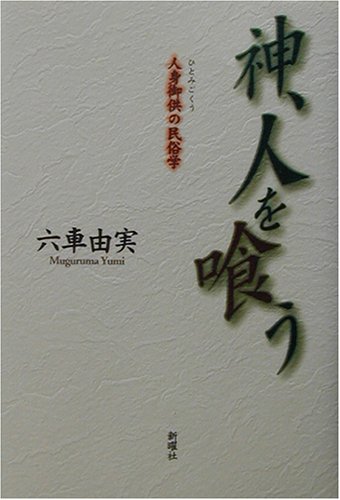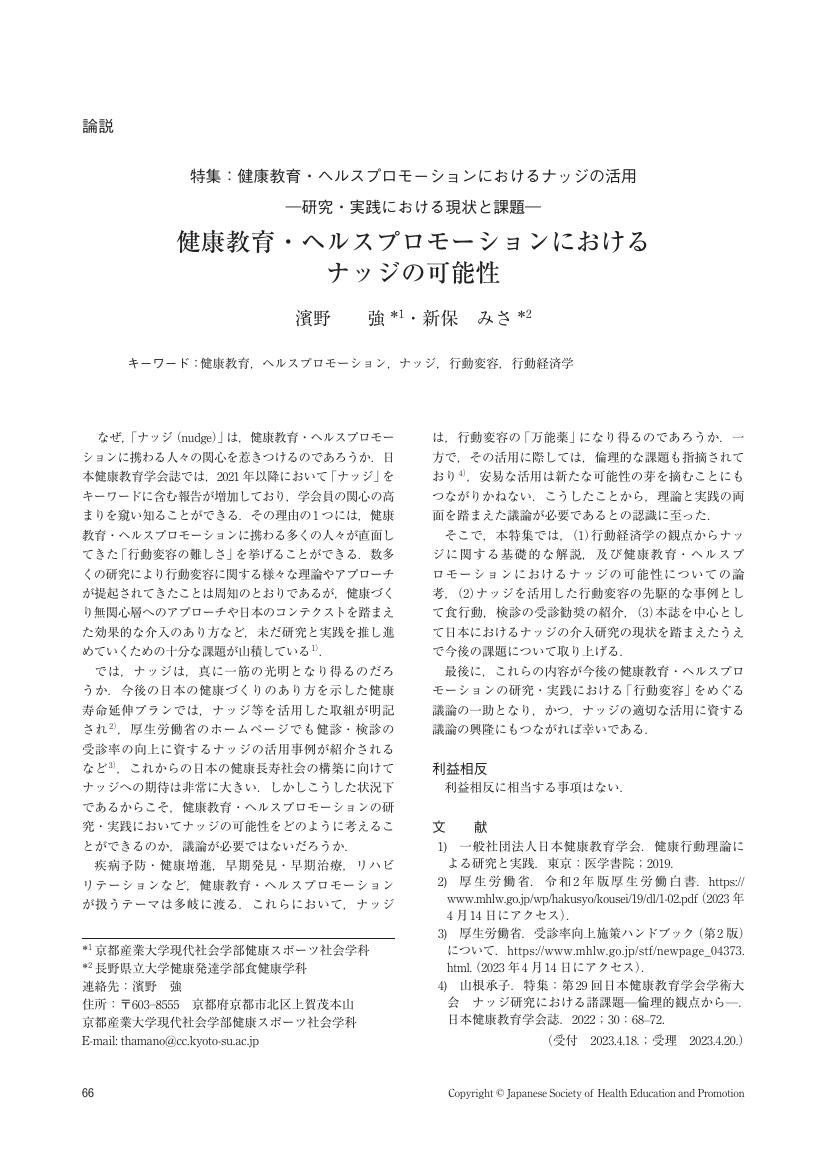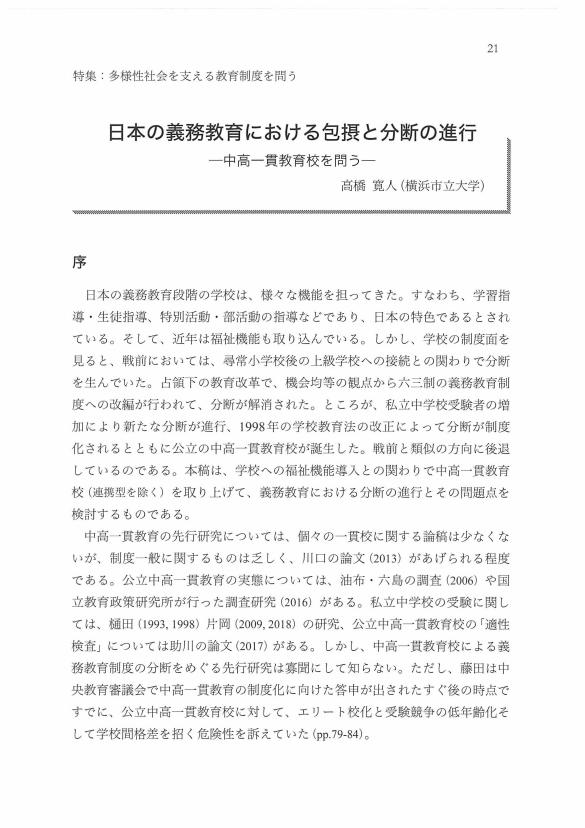- 著者
- Keiko Ogawa Daiki Sakamoto Rumiko Hosoki
- 出版者
- The Pharmaceutical Society of Japan
- 雑誌
- Chemical and Pharmaceutical Bulletin (ISSN:00092363)
- 巻号頁・発行日
- vol.71, no.7, pp.486-494, 2023-07-01 (Released:2023-07-01)
- 参考文献数
- 96
- 被引用文献数
- 1
Computational approaches to drug development are rapidly growing in popularity and have been used to produce significant results. Recent developments in information science have expanded databases and chemical informatics knowledge relating to natural products. Natural products have long been well-studied, and a large number of unique structures and remarkable active substances have been reported. Analyzing accumulated natural product knowledge using emerging computational science techniques is expected to yield more new discoveries. In this article, we discuss the current state of natural product research using machine learning. The basic concepts and frameworks of machine learning are summarized. Natural product research that utilizes machine learning is described in terms of the exploration of active compounds, automatic compound design, and application to spectral data. In addition, efforts to develop drugs for intractable diseases will be addressed. Lastly, we discuss key considerations for applying machine learning in this field. This paper aims to promote progress in natural product research by presenting the current state of computational science and chemoinformatics approaches in terms of its applications, strengths, limitations, and implications for the field.
1 0 0 0 神、人を喰う : 人身御供の民俗学
- 著者
- Riku Sakurai Yasuhiro Fukuda Chika Tada
- 出版者
- Japanese Society of Microbial Ecology / Japanese Society of Soil Microbiology / Taiwan Society of Microbial Ecology / Japanese Society of Plant Microbe Interactions / Japanese Society for Extremophiles
- 雑誌
- Microbes and Environments (ISSN:13426311)
- 巻号頁・発行日
- vol.38, no.2, pp.ME23023, 2023 (Released:2023-06-24)
- 参考文献数
- 27
Lipid-rich wastes are energy-dense substrates for anaerobic digestion. However, long-chain fatty acids (LCFAs), key intermediates in lipid degradation, inhibit methanogenic activity. In this study, TaqMan-based qPCR assays targeting the 16S rRNA gene of the cardinal LCFA-degrading bacterial species Syntrophomonas palmitatica and S. zehnderi were developed and validated. A trial experiment showed the advantage of species-specific quantification versus genus-specific quantification in assessing bacterial capacity for lipidic waste degradation. These qPCR assays will serve as monitoring tools for estimating the LCFA-degrading capacity of anaerobic digester communities and developing an effective strategy to enrich LCFA-degrading bacteria.
- 著者
- Amalia Ghaisani Komarudin Daisuke Nei Hiromi Kameya Itaru Sotome Tetsuya Araki
- 出版者
- Japanese Society for Food Science and Technology
- 雑誌
- Food Science and Technology Research (ISSN:13446606)
- 巻号頁・発行日
- pp.FSTR-D-23-00011, (Released:2023-07-03)
Non-thermal atmospheric plasma has emerged as a promising alternative sanitizer because of the presence of highly reactive oxygen species (ROS). This study investigated an integrated bubble-assisted method for more efficient distribution of the reactive species. We aimed to evaluate the antibacterial activity of the plasma-bubbling system against E. coli O157:H7 and determine the presence of reactive species. Two approaches were investigated: direct treatment and plasma-activated water (PAW) generation, using a plasma jet and pure oxygen. E. coli numbers were reduced by 3.3-log within 5 min of PAW treatment, whereas direct treatment achieved a higher log reduction, to below the detection limit, in 3 min. Study of selected scavengers of relevant ROS revealed that hydroxyl radicals (•OH) and singlet oxygen (1O2) are the primary short-lived reactive species. Based on these results, our plasma-bubbling treatment shows promise as an alternative water-based sanitizer.
1 0 0 0 OA 健康教育・ヘルスプロモーションにおけるナッジの可能性
1 0 0 0 OA 日本の義務教育における包摂と分断の進行 ー中高一貫教育校を問う一
- 著者
- 高橋 寛人
- 出版者
- 日本教育制度学会
- 雑誌
- 教育制度学研究 (ISSN:2189759X)
- 巻号頁・発行日
- vol.2021, no.28, pp.21-37, 2021 (Released:2023-03-12)
1 0 0 0 OA 第27回 マイクロ波放射計の観測データとその利用
- 著者
- 可知 美佐子
- 出版者
- 一般社団法人 日本リモートセンシング学会
- 雑誌
- 日本リモートセンシング学会誌 (ISSN:02897911)
- 巻号頁・発行日
- vol.38, no.5, pp.466-469, 2018-11-28 (Released:2019-05-18)
- 参考文献数
- 5
- 著者
- 横山 詔一 相澤 正夫 久野 雅樹 高田 智和 前田 忠彦
- 出版者
- 基礎教育保障学会
- 雑誌
- 基礎教育保障学研究 (ISSN:24333921)
- 巻号頁・発行日
- vol.6, pp.11-28, 2022 (Released:2022-09-15)
The first scientific literacy survey in Japan was conducted in 1948. It was the first time that a full-scale nationwide survey based on random sampling techniques was carried out in Japan, and data were collected from 16,820 men and women between the ages of 15 and 64 (by the traditional Japanese system). One of the most well-known aspects of this global landmark survey is the figures on illiteracy rates and their interpretation. The report of the survey, "The reading and writing ability of the Japanese" (1951), concluded that the illiteracy rate of the Japanese was"extremely low" at 1.7% or 2.1%. This view has been cited repeatedly in Japan and abroad and is now treated as a definite fact. However, a reexamination of the content and format of the test questions on the 1948 survey revealed that there was insufficient control of the difficulty level and that the test contained a large number of multiple-choice questions, making it problematic to simply classify those who scored zero on the test as illiterate. Therefore, we concluded that we should avoid uncritically quoting the description of illiteracy rates in this report.
1 0 0 0 OA 合意が先か,開発が先か
- 著者
- 名和 小太郎
- 出版者
- 国立研究開発法人 科学技術振興機構
- 雑誌
- 情報管理 (ISSN:00217298)
- 巻号頁・発行日
- vol.53, no.11, pp.638-640, 2011 (Released:2011-02-01)
1 0 0 0 OA ジェンダー平等と社会規範
- 著者
- 加藤 秀一
- 出版者
- 日本法社会学会
- 雑誌
- 法社会学 (ISSN:04376161)
- 巻号頁・発行日
- vol.2016, no.82, pp.69-80, 2016 (Released:2021-05-05)
Gender equality nowadays is (re)defined as equality not so much between men and women as equality between individuals, whose gender identities are various and often complicated. Although such a definition may show the progress in gender studies, what is important is whether or not it is useful as a tool to uncover and criticize inequalities in the real world. In this regard, it seems more and more obvious that the concept has been fraught with considerable difficulties. This paper illustrates some aspects concerning such difficulties and tries to suggest how to overcome them by means of reexamining the concepts of both “gender” and “equality.” First we propose a somewhat newly modified concept of gender, instead of traditional one based on dichotomy such as “biologically determined sex vs. socially constructed gender,” as social norms with respect to which we perform everyday practices of classifying and dividing people into just two groups. As for equality, from the perspective with regard to social norms that are present in our societies, it is necessary to pay much attention to the paradox such that to promote legal and institutional equality sometimes results with the reinforcement of stereotypical notions of masculinity and femininity under the condition that some women themselves desire the gendered norms. There is no sure remedy against such practical dilemma, but at least we can suggest a possible prescription for it: that is, to put greater emphasis on human rights that are provided in Article 13 of the Constitution of Japan than principles of equality in Article 14 when regarding to gender issues.
1 0 0 0 OA リスク選好の季節変化とボラティリティ効果
- 著者
- 石部 真人 角田 康夫 坂巻 敏史
- 出版者
- 行動経済学会
- 雑誌
- 行動経済学 (ISSN:21853568)
- 巻号頁・発行日
- vol.5, pp.256-259, 2012 (Released:2013-06-12)
- 参考文献数
- 11
日本株式市場において,個別銘柄は1~6月は上昇し7~12月は下落という明瞭な季節性を示す.この季節性とボラティリティとの関係を調べた結果,上昇期は高リスク・高リターン,下落期は高リスク・低リターンという関係が見られた.この原因として,投資家が年前半はリスク追求的になり,年後半はリスク回避的になるという様にリスク選好が季節変化している可能性が考えられる.ボラティリティの高い銘柄は相対的に低リターンというボラティリティ効果は上昇期よりも下落期の影響が大きいため発生している.投資家のリスク選好が季節変化している理由は,効果が半年間持続していることを考慮すると,冬至から夏至,夏至から冬至に至る日の長さの変化による説明に説得力があると思われる.
- 著者
- 川崎 英二 丸山 太郎 今川 彰久 粟田 卓也 池上 博司 内潟 安子 大澤 春彦 川畑 由美子 小林 哲郎 島田 朗 清水 一紀 高橋 和眞 永田 正男 牧野 英一 花房 俊昭
- 出版者
- 一般社団法人 日本糖尿病学会
- 雑誌
- 糖尿病 (ISSN:0021437X)
- 巻号頁・発行日
- vol.56, no.8, pp.584-589, 2013 (Released:2013-09-07)
- 参考文献数
- 13
- 被引用文献数
- 14
1型糖尿病は膵β細胞の破壊性病変によりインスリンの欠乏が生じて発症する糖尿病であり,発症・進行の様式によって,劇症,急性,緩徐進行性に分類される.今回,本委員会において急性発症1型糖尿病の診断基準を策定した.劇症1型糖尿病の診断基準を満たさず,口渇,多飲,多尿,体重減少などの糖尿病(高血糖)症状の出現後,おおむね3か月以内にケトーシスあるいはケトアシドーシスに陥り,糖尿病の診断早期より継続してインスリン治療を必要とする患者のうち,経過中に膵島関連自己抗体の陽性が確認されたものを「急性発症1型糖尿病(自己免疫性)」と診断し,同患者のうち膵島関連自己抗体が証明できないが内因性インスリン分泌が欠乏(空腹時CPR<0.6 ng/ml)しているものを単に「急性発症1型糖尿病」とする.しかし,内因性インスリン分泌欠乏が証明されない場合,あるいは膵島関連自己抗体が不明の場合には診断保留として期間をおいて再評価することが重要である.
- 著者
- 小暮 かおり
- 出版者
- 法政大学大原社会問題研究所
- 雑誌
- 大原社会問題研究所雑誌 = 大原社会問題研究所雑誌 (ISSN:09129421)
- 巻号頁・発行日
- vol.698, pp.38-50, 2016-12-01
1 0 0 0 OA インターネット上のコミュニケーションツールの現状と課題
- 著者
- 西野 典秀
- 出版者
- 日本社会情報学会
- 雑誌
- 日本社会情報学会全国大会研究発表論文集 日本社会情報学会 第17回全国大会
- 巻号頁・発行日
- pp.205, 2002 (Released:2002-09-19)
test
1 0 0 0 OA 小学校道徳教科書における「愛国心」の取り扱いについて : 教育出版と光文書院を事例として
- 著者
- 古川 雄嗣
- 出版者
- 北海道教育大学
- 雑誌
- 北海道教育大学紀要. 教育科学編 (ISSN:13442554)
- 巻号頁・発行日
- vol.68, no.2, pp.47-57, 2018-02
1 0 0 0 OA ボリコナゾールによる肝機能障害の臨床経過と危険因子に関する検討
- 著者
- 花井 雄貴 松尾 和廣 横尾 卓也 大谷 真理子 西村 功史 木村 伊都紀 平山 忍 植草 秀介 草野 歩 小杉 隆祥 西澤 健司
- 出版者
- 一般社団法人日本医療薬学会
- 雑誌
- 医療薬学 (ISSN:1346342X)
- 巻号頁・発行日
- vol.41, no.1, pp.1-10, 2015-01-10 (Released:2016-01-15)
- 参考文献数
- 22
- 被引用文献数
- 2 2
Hepatotoxicity associated with administration of voriconazole (VRCZ) is a major treatment-related adverse event and in some cases requires discontinuation of therapy. This study aimed to investigate the clinical course and risk factors for VRCZ-induced hepatotoxicity.Demographic and laboratory data were retrieved retrospectively from the medical records of 66 Japanese patients who underwent VRCZ treatment. VRCZ-induced hepatotoxicity was defined as an abnormal increase in liver function tests.VRCZ-induced hepatotoxicity was observed in 30 patients (45%), with 11 (37%) of these patients needing to discontinue the drug. Most of the events were observed within 1 to 2 weeks after the first dose of VRCZ. Of the liver function tests, an abnormal increase in γ-glutamyl transferase tended to occur earlier than changes in the other tests (ie, aspartate aminotransferase, alanine aminotransferase, alkaline phosphatase, and total bilirubin). Multiple logistic regression analysis showed that the trough concentration of VRCZ was a risk factor for hepatotoxicity (adjusted odds ratio = 2.89, 95%CI 1.49-5.59, P = 0.002). Based on this result, a VRCZ trough concentration < 4 μg/mL was considered to be the target for minimizing the risk of developing hepatotoxicity. After discontinuation of VRCZ in patients who developed hepatotoxicity, every liver enzyme abnormality improved within approximately 1 week.In conclusion, this study shows that VRCZ-induced hepatotoxicity may occur early after the initiation of VRCZ therapy. We therefore recommend appropriate adjustments of the starting dose and frequent liver function tests in patients treated with VRCZ, especially during the first 2 weeks.
1 0 0 0 OA 原稿執筆の原点:記録を残すことの意義
- 著者
- 池田 貴儀
- 出版者
- 日本看護図書館協会
- 雑誌
- 看護と情報:日本看護図書館協会会誌 (ISSN:13403753)
- 巻号頁・発行日
- vol.27, pp.57-58, 2020-03-31 (Released:2023-04-28)
- 参考文献数
- 4
1 0 0 0 アファンタジアの包括的理解に向けた認知・神経科学的検討
本研究が対象とする「アファンタジア(aphantasia)」は,実際の知覚は機能しているにもかかわらず心的イメージが機能しない特質のことであり,新たな事例として提唱された。心的イメージとは刺激対象が実際に目の前に存在していなくとも,それを疑似体験できる機能である。私たちは想像(創造)や思考など日常生活で意識せずにイメージを多用しているが,アファンタジア当事者はイメージを思い浮かべることが少ないことから,結果的にイメージ以外の情報処理機構を用いていると推測できる。本研究は,アファンタジアという新たな事例の認知・神経科学的理解を通して,社会におけるアファンタジア理解を促進しようとするものである。
1 0 0 0 OA 国際関係論におけるアイデンティティ
- 著者
- 大庭 三枝
- 出版者
- JAPAN ASSOCIATION OF INTERNATIONAL RELATIONS
- 雑誌
- 国際政治 (ISSN:04542215)
- 巻号頁・発行日
- vol.2000, no.124, pp.137-162,L15, 2000-05-12 (Released:2010-09-01)
- 参考文献数
- 58
Since Erikson theorized the concept of identity in psychology, it has been applied to other academic fields such as sociology and political science. Especially in the 1990s, identity theory has been introduced to IR theory and much academic writings has argued on the importance of the concept of identity in international relations from several viewpoints. The purpose of this article is to develop a frame of reference to the concept of identity in IR theory.This article, firstly, tries to clarify what “identity” means. “Identity” means the contents of self-identification—one's thinking about “what I am” or “what we are”. About the concept of identity, there are two important points. The first point is that other members in the society should recognize one's insistence about his/her own self-identification. Without the recognition by other members in the society, one's self-identification is only equal to his/her self-image. The second point is that the definition of “I” or “we” simultaneously defines “the other” and the difference between “I”/“we” and “the other” tends to be emphasized.Secondly, this article surveys literature focusing on identity in international relations in the 1990s, for example, arguments by Wendt, Katzenstein, Campbell, Neuman and others. Then it points out that most of them overlook the existence of “double contingency”. For meaningful arguments over “identity”, “double contingency” should be considered and possible gaps between one's perception about the content of self-identification and the other members' should be explicitly dealt with. When such gaps exist over one's self-identification, he/she often falls into “identity crisis”. The above arguments hold true with respect to collective identity.Finally, this article takes Japan and Australia as examples of identity crisis in international society and describes how national leaders and intellectuals have tried to overcome such crises.
- 著者
- 宮津美しさ探検隊編集
- 出版者
- 宮津美しさ探検隊
- 巻号頁・発行日
- 2009






